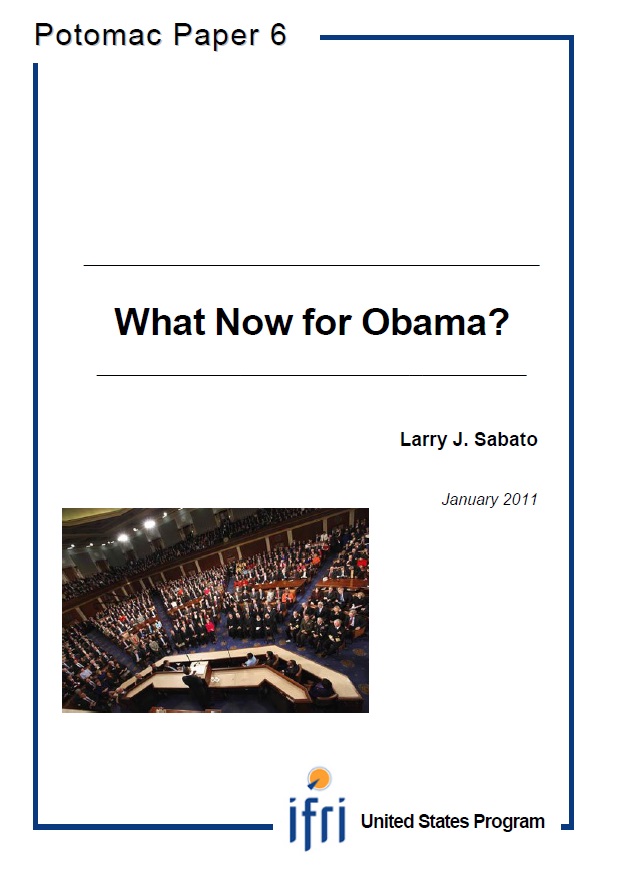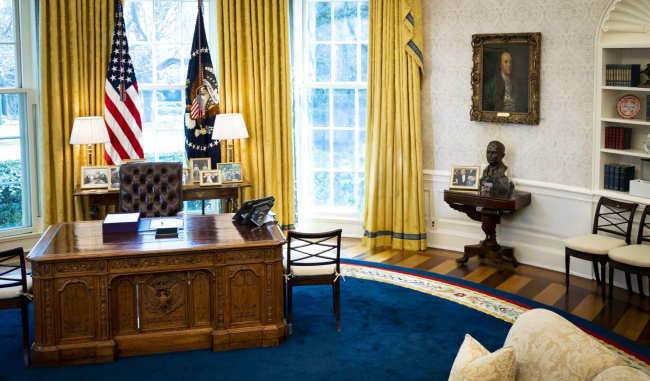What Now for Obama ?

Larry J. Sabato, Professor of Politics at the University of Virginia, provides us with solid historical references and tools of analysis to understand midterms in general and those of 2010 in particular.
He points to the damaging effect of Tea Party candidacies on the Republican victory in the Senate, and on the impact of Republican gains on the 2011 redistricting process. But the bad economy seems to have been the key issue for 2010 voters - it may be key as well in the 2012 presidential election.
By renewing the totality of U.S. House seats, a third of U.S. Senate seats and a number of Governors and state assembly seats, midterm elections have long been considered a referendum on the President, even though this particular vote obeys a number of other considerations. Midterms are generally bad for the party of the President, especially when they take place during the President’s second term. They do indeed introduce a risk of institutional paralysis, which some in the country of checks and balances may consider a good thing.
Larry J. Sabato, Professor of Politics at the University of Virginia, provides us with solid historical references and keys of analysis to understand midterms in general and those of 2010 in particular.
The most significant elements of the November 2010 election, Sabato tells us, are the damaging effect of Tea Party candidacies on the Republican victory in the Senate ; and the lasting consequences of Republican gains in state governorships and legislative chambers : in the wake of the 2010 census, they will be in charge of redistricting the states for national House and state legislative seats for the next decade.
The exit polls show how precise categories of the electorate have evolved since the presidential election of 2008. More than anything, they point to the major factor in the 2010 election –and most probably the 2012 presidential election–: the bad economy and its impact on voters’ attitudes.

Available in:
Regions and themes
ISBN / ISSN
Share
Download the full analysis
This page contains only a summary of our work. If you would like to have access to all the information from our research on the subject, you can download the full version in PDF format.
What Now for Obama ?
Related centers and programs
Discover our other research centers and programsFind out more
Discover all our analysesDonald Trump v. the States: the Case of New York
While the disruptive policies of the second Trump administration are being implemented at the federal level and on the international stage, they are also being felt in the federal states and major cities across the country. In the spring of 2025, several cases involving the state and city of New York demonstrate that the president’s attacks on environmental protection, the separation of powers, freedom of speech, etc., are also being carried out at the local level.
How the US under Trump Became a Strategic and Ideological Adversary of Europe
The Europeans' worst security nightmare seems to be coming true: on Tuesday, February 18, 2025, U.S. Secretary of State Marco Rubio and Russian Foreign Minister Sergey Lavrov met in Saudi Arabia to initiate the normalization of relations between their two countries. The meeting also aimed to set up peace negotiations for Ukraine. However, despite having the potential to affect the entire continent, the discussions took place without the Europeans or the Ukrainians being present.
Will Trumpian Authoritarianism Lead to a Constitutional Crisis?
Since his return to the White House on January 20, 2025, President Donald Trump has signed around sixty executive orders to implement his political agenda. Numerous other measures have also been introduced by the White House and the new Department of Government Efficiency (DOGE) as part of these orders.
Trump’s Second Term: Laying the Groundwork for a New Trade War
In a statement released on February 1, 2025, President Trump announced the implementation of a 10% tariff on Chinese goods and a 25% tariff on imports from Canada and Mexico. While the former took effect via executive order on February 4, the latter were granted a 30-day reprieve. Sanctions targeting European Union (EU) products are said to be imminent.








